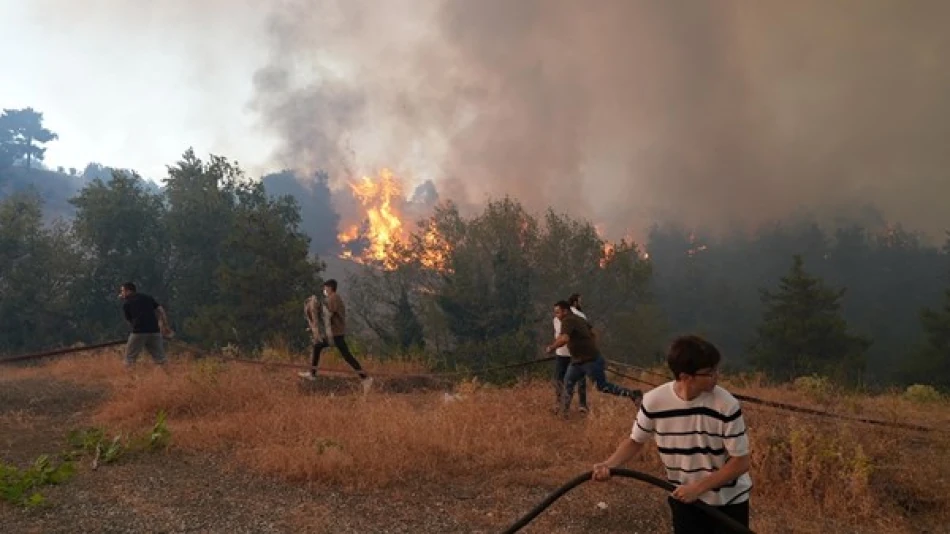
Turkey Battles Massive Forest Fires for Third Consecutive Day: Ongoing Efforts to Contain Devastating Blazes
Turkey's Industrial Heartland Burns as Climate Crisis Intensifies
Turkey is battling massive wildfires across multiple regions, including in Bursa, the country's fourth-largest city and a crucial industrial hub in the northwest. As President Erdoğan declares "war" on the blazes, the crisis highlights Turkey's growing vulnerability to climate-driven disasters that threaten both economic stability and public safety.
Strategic Economic Centers Under Threat
The fires, which began Saturday evening, have spread beyond Bursa to engulf Turkey's largest forested region of Karabük in the north, home to the historic tourist destination of Safranbolu, and the southern province of Kahramanmaraş. This geographic spread represents a significant threat to Turkey's economic infrastructure, as Bursa alone accounts for a substantial portion of the country's automotive and textile manufacturing.
For three consecutive days, firefighters have struggled against three separate blazes around Bursa using 850 vehicles, six aircraft, and four helicopters. However, strong winds have severely limited the effectiveness of aerial firefighting equipment, according to Agriculture and Forestry Minister Ibrahim Yumaklı.
Climate Reality Hits Home
Diyarbakır province authorities have warned residents of temperatures rising 4-6 degrees above seasonal averages through August 2nd. This extreme heat wave is expected to continue throughout the week, contrasting sharply with neighboring Greece where similar conditions appear to be subsiding.
The minister acknowledged the limitations of current disaster response capabilities, stating that "given the scale and intensity of the fires, the ability to respond quickly to such disasters is sometimes limited." This admission reflects a broader challenge facing Mediterranean countries as climate change intensifies wildfire seasons.
Community Response Reveals Infrastructure Gaps
Television footage showing residents running toward fires carrying cups of water and locals using tractors to transport water tanks illustrates both community solidarity and the inadequacy of official firefighting resources. This grassroots response, while admirable, underscores the need for enhanced disaster preparedness infrastructure.
Regional Pattern of Climate Vulnerability
Turkey's current crisis mirrors similar challenges across Europe this summer, where multiple countries have experienced severe heat waves and widespread forest fires. Scientists directly link these phenomena to global warming, suggesting this represents a new normal rather than an exceptional event.
Economic and Political Implications
The targeting of Bursa is particularly significant given its role as Turkey's automotive manufacturing center, hosting major facilities for companies like Renault and Tofaş. Any prolonged disruption could impact supply chains already strained by global economic uncertainties.
President Erdoğan's characterization of the fires as a "war" reflects the political stakes involved. With Turkey facing economic pressures and upcoming electoral considerations, effective disaster management becomes crucial for maintaining public confidence in government capabilities.
The crisis also highlights Turkey's need for enhanced climate adaptation strategies, similar to investments made by countries like Portugal and Australia following their own devastating fire seasons. Without significant infrastructure improvements and forest management reforms, Turkey faces recurring threats to its economic stability and public safety.
Most Viewed News

 Layla Al Mansoori
Layla Al Mansoori






